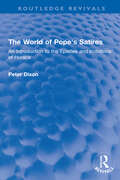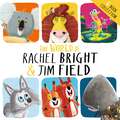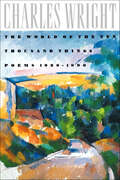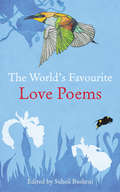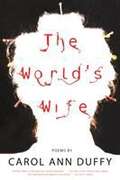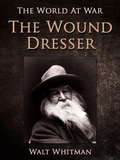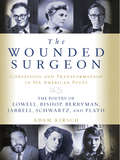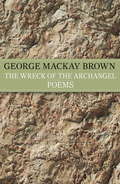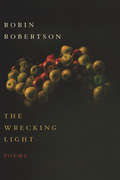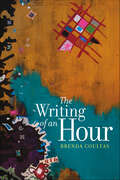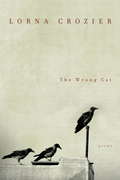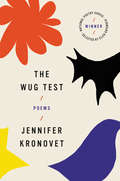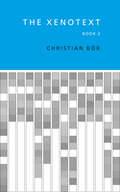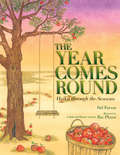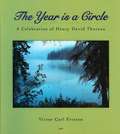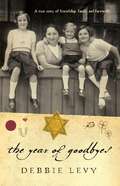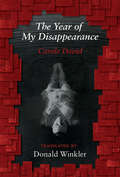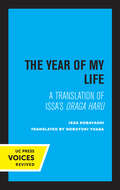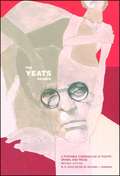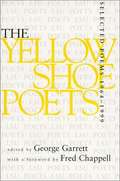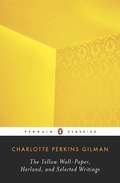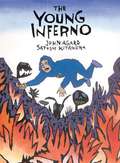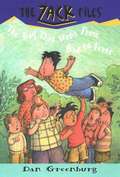- Table View
- List View
The World of Pope's Satires: An Introduction to the Epistles and Imitations of Horace (Routledge Revivals)
by Peter DixonFirst published in 1968, The World of Pope’s Satires is a stimulating and challenging book showing how the satires written by Pope during the 1730s were not only expressions of his own .poetic personality but were also responsive to the habits and attitudes of the age. The author considers Pope’s uses of some current conversational technique (especially that of ‘raillery’) and of the closely related social ideal of the cultivated gentleman. Pope’s regard for certain personal attributes and moral values – notably hospitality, integrity, friendship, charity and self-knowledge – is examined in two ways; as it expresses itself positively in the satires, and as it is defined negatively by his antipathy towards courtly self-seeking and hypocrisy, contemporary manifestations of acquisitiveness, and the pride associated with neo-stoicism. The final chapter is wide ranging and shows that although Pope is at times representative, and therefore limited, in his response to the pressures and uncertainties of the age, his satires live because of the subtlety of his treatment of such Augustan commonplaces as Order and Balance and the passion and spirit of his writing. This will be an interesting read for students of English literature.
The World of Rachel Bright and Jim Field: The Lion Inside and Other Stories: 6 book collection
by Rachel BrightA collection of six stories from the world of Rachel Bright & Jim Field. Meet a brave lion, two squabbling squirrels, a wandering whale and many more incredible animal characters in these best-loved rhyming tales.Featuring: The Lion InsideThe Koala Who CouldThe Squirrels Who SquabbledThe Way Home for WolfThe Whale Who Wanted MoreThe Gecko and the Echo(P) 2022 Hodder & Stoughton Limited
The World of the Ten Thousand Things: Poems 1980–1990
by Charles WrightThe World of Ten Thousand Things gathers The Southern Cross (1981), The Other Side of the River (1984), Zone Journals (1988), and a new group of poems, "Xionia," into one volume, allowing us to see Wright's work of the past decade as, in essence, one long poem, a meditation on self, history, and the metaphysical that is among the most ambitious and resonant creations in contemporary American poetry.
The World's Favorite Love Poems
by Suheil BushruiIn this delightful volume of love poetry, renowned literature professor Suheil Bushrui presents nearly two hundred cherished works from around the world and down through the ages. Here, traditional classics from Shakespeare to Rossetti are thrown into new light beside the poetry of Eastern writers such as Ibn Arabi and Rumi, while little-known poems from the indigenous peoples of Africa, Australasia, and the Americas offer passages that are both moving and profound. Exploring the many facets of love - desire, devotion, delirium, joy, and sorrow - this uniquely diverse collection reminds us of the bonds we all share through the universal experience of love. Without poetry love is wordless. "Stand still and I will read to thee" (Donne).
The World's Wife: Poems
by Carol Ann DuffyStunningly original and haunting, the voices of Mrs. Midas, Queen Kong, and Frau Freud, to say nothing of the Devil's Wife herself, startle us with their wit, imagination, and incisiveness in this collection of poems written from the perspectives of the wives, sisters, or girlfriend is of famous—and infamous—male personages. Carol Ann Duffy is a master at drawing on myth and history, then subverting them in a vivid and surprising way to create poems that have the pull of the past and the crack of the contemporary.
The Wound Dresser: A Series Of Letters, Written From The Hospitals In Washington, During The War Of The Rebellion (classic Reprint) (The World At War)
by Walt WhitmanWalt Whitman’s “The Wound-Dresser” is a sixty-five-line free-verse poem in four sections describing the suffering in the Civil War hospitals and the poet’s suffering, faithfulness to duty, and developing compassion as he tended to soldiers’ physical wounds and gave comfort. Published at war’s end, the poem opens with an old veteran speaking, imaginatively suggesting some youths gathered about who have asked him to tell of his most powerful memories. The children request stories of battle glory, but the poet quickly dismisses these as ephemeral. He then narrates a journey through a military hospital such as Whitman experienced in Washington, D.C., during the second half of the war. (Excerpt from Wikipedia)
The Wounded Breakfast
by Russell EdsonThe wounded Breakfast is a famed collection of poems by Russell Edson, a dark and kind of twisted work.
The Wounded Surgeon: The Poetry of Lowell, Bishop, Berryman, Jarrell, Schwartz, and Plath
by Adam Kirsch"One of the most promising young poet-critics in America" (Los Angeles Times) examines a revolutionary generation of poets. Robert Lowell, Elizabeth Bishop, Sylvia Plath, John Berryman, Randall Jarrell, and Delmore Schwartz formed one of the great constellations of talent in American literature. In the decades after World War II, they changed American poetry forever by putting themselves at risk in their poems in a new and provocative way. Their daring work helped to inspire the popular style of poetry now known as "confessional." But partly as a result of their openness, they have become better known for their tumultuous lives--afflicted by mental illness, alcoholism, and suicide--than for their work. This book reclaims their achievement by offering critical "biographies of the poetry"--tracing the development of each poet's work, exploring their major themes and techniques, and examining how they transformed life into art. An ideal introduction for readers coming to these major American poets for the first time, it will also help veteran readers to appreciate their work in a new light.
The Wreck of the Archangel
by George BrownThis collection of the poetry of George Mackay Brown centres on the theme of journeys - including an ill-fated 19th century trip ending off the Orkney island of Westray, from which the book takes its title.
The Wreck of the Archangel
by George Mackay Brown George Mackay BrownThis collection of the poetry of George Mackay Brown centres on the theme of journeys - including an ill-fated 19th century trip ending off the Orkney island of Westray, from which the book takes its title.
The Wrecking Light: Poems
by Robin RobertsonShortlisted for the T.S. Eliot Prize, the Scottish poet’s fourth collection shimmers with “an oneiric charge and intensity” (Guardian, UK).The Wrecking Light is an intense, moving, bleakly lyrical, and at times shocking book. These poems are written with the authority of classical myth, yet sound utterly contemporary. The poet’s gaze—whether on the natural world or the details of his own life—is unflinching and clear, its utter seriousness leavened by a wry, dry, and disarming humor.Alongside fine translations from Neruda and Montale and dynamic retellings of stories from Ovid, the poems here pitch the power and wonder of nature against the frailty and failure of human beings. This is a book of considerable grandeur and sweep that confirms Robertson as one of the most arresting and powerful poets at work today.
The Writing of an Hour (Wesleyan Poetry Series)
by Brenda CoultasWhat actually happens within the revolution of the clock's hands? In The Writing of an Hour the poet considers the effort and the deliberateness that brings her to her desk each day. Despite domestic and day job demands and widespread lockdown, Coultas forges connections to the sublime and wonders what it means to be from the Americas. These poems verge on the surreal, transform the quotidian, and respond anew to the marvelous. The Writing of an Hour takes the reader on a journey in four sections; from a bedroom to an improvised desk over the North Sea, where she attempts to create an artwork inside an airplane cabin flying over Greenland's rivers of ice. The Mending HourI tied one on, I mean I took my grandmother's apron, its strings and glittery rickrack and I wore it on the streets of the East Village. The apron is a cloak of superpowers, a psychic umbrella I paraded past Emma Goldman's E. 10th St. address, and rang her doorbell for a sip of water. My domestic armor is made of gingham though a woman is still considered an unelectable candidate.
The Wrong Cat
by Lorna CrozierLike the people and animals in her new collection, Lorna Crozier "defies / the anecdotal, / goes for the lyric, / music made from / bone and muscle and the grace notes" of life. The poems in The Wrong Cat are vintage Crozier: sly, sexy, irreverent, and sad, and populated by fully realized characters whose stories take place in a small lyrical space. We learn about a mother's last breath, the first dog in heaven, a man's fear that his wife no longer loves him, and the ways in which animals size up the humans around them and find them wanting. With Crozier's celebrated mix of vibrant imagery, piercing observations, and deeply felt human emotions, these poems provide an affirmation in the midst of the fluid, often challenging nature of experience.
The Wug Test: Poems
by Jennifer KronovetA collection of language-driven, imaginative poetry from the winner of the 2015 National Poetry Series Open Competition.Jennifer Kronovet's poetry is inflected by her fraught, ecstatic relationship with language--sentences, words, phonemes, punctuation--and how meaning is both gained and lost in the process of communicating. Having lived all over the world, both using her native tongue and finding it impossible to use, Kronovet approaches poems as tactile, foreign objects, as well as intimate, close utterances.In The Wug Test, named for a method by which a linguist discovered how deeply imprinted the cognitive instinct toward acquiring language is in children, Kronovet questions whether words are objects we should escape from or embrace. Dispatches of text from that researcher, Walt Whitman, Ferdinand de Saussure, and the poet herself, among other voices, are mined for their futility as well as their beauty, in poems that are technically revealing and purely pleasurable. Throughout, a boy learns how to name and ask for those things that makes up his world.
The Xenotext: Book 2
by Christian BokThe first work of ‘living poetry’ in the world, by the author of the bestselling book Eunoia.Christian Bök in Book 1 of The Xenotext outlined his plan to encode a poem into the genome of a deathless bacterium, thereby writing a text durable enough to outlive any apocalypse, surviving until the death of the Sun itself. After more than two decades of effort, Bök has, at last, succeeded at this incredible experiment, and Book 2 of The Xenotext situates his enterprise within the deep time of the cosmos.Bök rehearses some of the techniques likely to be used in the future to preserve the cultural heritage of our civilization against a potential planetary disaster (be it thermonuclear warfare or astrophysical barrage); moreover, Bök speculates that, buried within the biochemistry of Life itself, there really does exist an innate beauty, if not a hidden poetry – a literal message that we might read, if we deign to seek it.
The Year Comes Round
by Ilse Plume Sid FarrarBrown bear politelyoffers to surrender hisden to nosy skunkTwelve nature-themed haiku accompanied by lush illustrations take the reader from January to December. A great way to introduce children to the traditional Japanese poetry form.
The Year Is a Circle: A Celebration of Henry David Thoreau
by Victor Carl FriesenHenry David Thoreau is remembered as a foremost nature writer. He was an ecologist before the term was invented. A man of many parts, including social critic, he is known to have had an influence on such internationally recognized leaders as Gandhi and Martin Luther King. "Victor Carl Friesen, author of The Spirit of the Huckleberry, an astute analysis of Henry David Thoreau’s prose, again demonstrates his affinity for the Walden sage with this unique volume of poems and photographs. Taking a series of quotations demonstrating Thoreau’s sensuousness, he writes a poem for each and then illustrates them with outstanding colour photographs. The poems, mostly written in the blank verse form, have sturdy strength and remarkable insight into both Thoreau and nature."- Walter Harding, Founding Secretary, The Thoreau Society Inc., State University of New York, Genesco "Friesen is particularly qualified as a Thoreau scholar, for his personal interests extend well beyond literature to include natural history, a subject very much at the centre of Thoreau’s writings."- Canadian Book Review Annual
The Year Of Goodbyes: A True Story Of Friendship, Family And Farewells
by Debbie LevyThis book tells the true story of what happened to a 12-year-old girl named Jutta (Debbie Levy's mother) in 1938. Actual entries in a posie album (autograph book) serve as stepping stones in a crucial year in history, when people of Jewish ancestry in Germany and Austria were systematically stripped of their rights, subjected to violence, and arrested without cause Jutta was one of the lucky ones who escaped to America before the rising tide of violence erupted into World War II and the tragedy of the Holocaust Remembrances from Jutta's friends and relatives introduce chapters, written in verse form, that describe her experiences. Many of them typical of any teenager anywhere and report some of the history of the era. Debbie wrote these verses in consultation with her mother to reflect her voice, feelings, and thoughts as she was living through this memorable year. The book also includes excerpts from Jutta's diary. Together the poesie writings, verses and diary entries reflect a year of change and chance, confusion and cruelty Most of all, they describe a year of goodbyes.
The Year of My Disappearance
by Donald Winkler Carole DavidWinner of the 2016 Prix des LibrairesWinner of the 2016 Quebecor Prize for the Trois-Rivières Poetry FestivalCarole David's The Year of My Disappearance is a searing, surreal, darkly comic descent into a woman's psyche. From Governor General's Award winning translator, Donald Winkler, into English, comes this pitiless assault on the author's own torments and pretenses. Present here are figures lodged in her memory: lovers, strangers, her mother, and Bosch-like apparitions out of her dreams and imaginings. Through it all, a fierce combat is being waged between immolation and survival. As David has written, "I gave free range to the lives that dwelt within me." It's down this road the blind spot sings.
The Year of My Life, Second Edition: A Translation of Issa's Oraga Haru
by Issa KobayashiThis title is part of UC Press's Voices Revived program, which commemorates University of California Press’s mission to seek out and cultivate the brightest minds and give them voice, reach, and impact. Drawing on a backlist dating to 1893, Voices Revived makes high-quality, peer-reviewed scholarship accessible once again using print-on-demand technology. This title was originally published in 1960.
The Yeats Reader, Revised Edition: A Portable Compendium of Poetry, Drama, and Prose
by Richard J. Finneran William Butler YeatsThroughout his long life, William Butler Yeats -- Irish writer and premier lyric poet in English in this century -- produced important works in every literary genre, works of astonishing range, energy, erudition, beauty, and skill. His early poetry is memorable and moving. His poems and plays of middle age address the human condition with language that has entered our vocabulary for cataclysmic personal and world events. The writings of his final years offer wisdom, courage, humor, and sheer technical virtuosity. T. S. Eliot pronounced Yeats "the greatest poet of our time -- certainly the greatest in this language, and so far as I am able to judge, in any language" and "one of the few whose history is the history of their own time, who are a part of the consciousness of an age which cannot be understood without them."The Yeats Reader is the most comprehensive single volume to display the full range of Yeats's talents. It presents more than one hundred and fifty of his best-known poems -- more than any other compendium -- plus eight plays, a sampling of his prose tales, and excerpts from his published autobiographical and critical writings. In addition, an appendix offers six early texts of poems that Yeats later revised. Also included are selections from the memoirs left unpublished at his death and complete introductions written for a projected collection that never came to fruition. These are supplemented by unobtrusive annotation and a chronology of the life.Yeats was a protean writer and thinker, and few writers so thoroughly reward a reader's efforts to essay the whole of their canon. This volume is an excellent place to begin that enterprise, to renew an old acquaintance with one of world literature's great voices, or to continue a lifelong interest in the phenomenon of literary genius.
The Yellow Shoe Poets: Selected Poems, 1964-1999
by George P. GarrettIn celebration of the many fine poets it has been privileged to make known since launching its poetry list in 1964, Louisiana State University Press presents an anthology of the LSU poets, hereby transformed into The Yellow Shoe Poets.
The Yellow Wall-paper, Herland, and Selected Writings
by Charlotte Perkins GilmanWonderfully sardonic and slyly humorous, the writings of landmark American feminist and socialist thinker Charlotte Perkins Gilman were penned in response to her frustrations with the gender-based double standard that prevailed in America as the twentieth century began. Perhaps best known for her chilling depiction of a woman's mental breakdown in her unforgettable 1892 short story 'The Yellow Wall-Paper', Gilman also wrote Herland, a wry novel that imagines a peaceful, progressive country from which men have been absent for 2,000 years. Both are included in this volume, along with a selection of Gilman's major short stories and her poems.
The Young Inferno
by John AgardCan our hoodie hero make it through nine circles of Hell and back again? Will he find love with his soulmate, Beatrice? Discover the city of Dis where everybody disses everybody. Meet Frankenstein, the lovesick bouncer with the bling-bling. Come face to face with the Furies, a gang of snake-haired females in T-shirts. Prepare for a host of gluttons, bigots and plunderers from the world of history and politics. John Agard blasts Dante's Inferno into the 21st century in a red-hot retelling, with a little help from Satoshi Kitamura and his wicked artwork.
The Zack Files #20: How I Went from Bad to Verse
by Dan GreenburgZack goes on a class trip, gets an insect bit, and suddenly can't speak a single word that isn't in rhyme. Talking like a modern-day Shakespeare may be fun at first, but not when you can't turn it off! What could be verse? How did this happen? And how can Zack make it stop?
